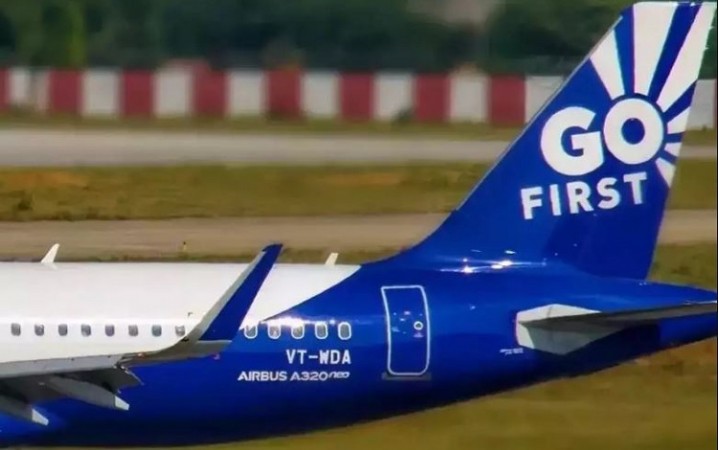
NEW DELHI: The Wadia group Go First announced on Tuesday that it has filed for insolvency resolution because it is unable to pay its debts and that 50% of its fleet has been grounded due to "faulty engines" manufactured by US firm Pratt & Whitney. According to CEO Kaushik Khona, the airline has requested voluntary insolvency resolution proceedings before the National Company Law Tribunal (NCLT).
The airline confirmed earlier today that all flights would be cancelled for three days, from May 3 to May 5, due to weather. After Go First made the decision to cancel flights for three days, the aviation regulator DGCA has given the airline a show cause notice. The airline has been ordered to submit information on the measures taken to lessen the inconvenience to passengers who had tickets for the cancelled flights, as well as a plan of action to operate flights in accordance with the authorised schedule beginning on May 5, 2023.
Jyotiraditya Scindia, the aviation minister, stated in a statement that Go First had "critical supply chain issues with regard to their engines." In every way imaginable, the government has supported the airline. The problem has also been discussed with the relevant stakeholders. It is regrettable that the airline's financial situation has suffered because of this operational congestion. We are aware that the airline has submitted an application to the NCLT. Waiting for the legal system to finish its work is prudent.
In a statement regarding its bankruptcy filing, the airline stated: "Go First has had to take this step as a result of the steadily rising number of failing engines supplied by Pratt & Whitney's International Aero Engines, LLC, which has resulted in Go First having to ground 25 aircraft (equivalent to roughly 50% of its Airbus A320neo aircraft fleet) as of 1 May 2023. As a result of Pratt & Whitney's defective engines, more aircraft will be grounded, increasing the rate from 7% in December 2019 to 50% in December 2022. This is true even though Pratt & Whitney has consistently broken promises it has made over the years.
It further stated that the airlines might resume full operations by August/September 2023 if Pratt & Whitney complied with the directives in the emergency arbitrator's judgement.
"Go First regrets the current circumstance that has compelled it to submit an application to the NCLT. Pratt & Whitney's refusal to comply with the emergency arbitrator's award by providing spare leased engines, along with more engine failures anticipated in the following three to four months, will render Go First's operations unprofitable, according to a statement from the firm.
The lenders to the airlines were not aware of the insolvency petition, according to Reuters sources. They are anticipated to meet and go over the airlines' next strategy.
The airline's cash flow has been severely impacted as a result of the forced grounding of more than half of its fleet due to ongoing problems and the non-supply of engines for its Airbus A320 neo aircraft from Pratt & Whitney.
The airline is in talks with possible investors and has been looking for a strategic investment in the business.
The airline is operating in cash and carry mode, which means it must make daily payments for the amount of flights it wishes to fly. It has been agreed that the vendor may cease operations if there is non-payment," a representative of an oil marketing company said.
In addition, the airline has filed a complaint in federal court in Delaware against the US-based engine manufacturer, asking for enforcement of an arbitration ruling requiring Pratt & Whitney to supply it with engines, failing which there is a risk of the airline going out of business. According to the arbitration ruling in Go First's favour issued on March 30, there is a possibility of irreparable injury if emergency engines are not provided.
According to industry officials, Go First had grounded 30 aircraft as of March 31. This number includes nine aircraft for which lease payments are due. According to the airline's website, Go First has 61 aircraft in its fleet, including 56 A320neos and five A320ceos.
When airfares are expensive and traffic is at an all-time high following the epidemic, there is a loss of passenger revenue. The airline anticipates operating 1,538 flights per week with the current summer schedule, which is 40 fewer than in 2017. The current season began on March 26 and will end on October 28.